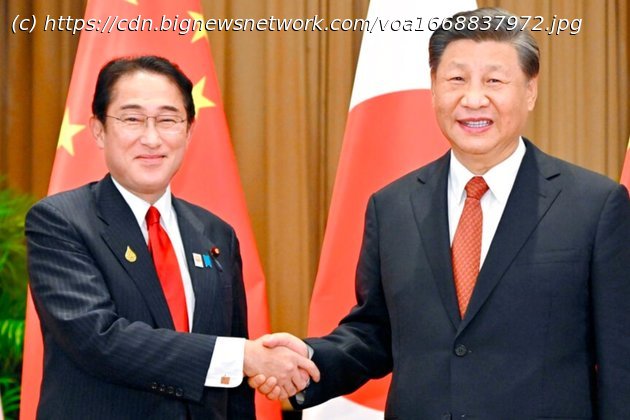TAIPEI – The leaders of China and Japan agreed to resume high-level dialogue and increase exchanges on the sidelines of the Asia-Pacific Economic Cooper
The leaders of China and Japan agreed to resume high-level dialogue and increase exchanges on the sidelines of the Asia-Pacific Economic Cooperation summit in Bangkok this week, but experts are questioning how much progress the two made in easing the longstanding friction between their countries.
In the 45-minute exchange Thursday, Prime Minister Fumio Kishida and President Xi Jinping agreed to build a “constructive and stable” relationship and promote cooperation in environment protection, energy-savings and health care and resume bilateral, high-level economic dialogue.
‘Both China and Japan hold responsibilities in ensuring the security and peace of this region and in the wider international community,’ Kishida said in his opening remarks.
Kishida, who became Japan’s 100th prime minister in October 2021, told reporters that he agreed with Xi on reopening communications, and that Japan’s foreign minister will visit China in the near future.
Kishida served as Japan’s minister for foreign affairs from 2012-17 and as acting minister of defense in 2017. In the past, he has worried about China’s growing power and influence in the region and globally.
Kishida reiterated those concerns as recently as Nov. 13 in Cambodia at the East Asia Summit.
‘There has been continued, increasing actions by China in the East China Sea that violate Japan’s sovereignty. China also continues to take actions that heighten regional tension in the South China Sea,’ he said according to a statement released by Japan’s foreign ministry.
Xi stressed China’s stance on the concerns and challenges the two countries share when the two met Thursday.
Chinese President Xi Jinping gestures after the 29th APEC Economic Leaders’ Meeting (AELM) during the APEC Summit in Bangkok, Thailand, Nov.






